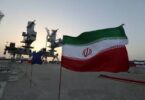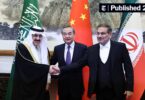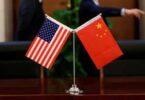Federal budget for the next fiscal year is under discussion in the National Assembly and finance bill is yet to be tabled but National Electric Power Regulatory Authority has allowed the Power Distribution Companies a uniform increase of Rs.150 in electricity tariff. It is one of the tough conditions included in the staff level International Monetary Fund (IMF) agreement for the frontloaded loan programme of $ 6 billion. This increase in power tariff is aimed at recovering Rs. 190 billion from electricity consumers within a period of 15 months to reduce the circular debt. The prices of petroleum products have already been increased and gas tariff jacked.
After the critical comments of a senior official of President Trump administration the international credit rating agencies see risks to the IMF programme. Fetch has not improved Pakistan rating from B negative despite the staff level agreement with the Washington based multilateral lending agency. The IMF Executive Board will take up Pakistan’s bail out request in its meeting scheduled for 3rd July.
The sky-high tariff of energy inputs is one of the major factors that vitiate the economic environment. When the incumbent government decided to make a formal request for IMF loans package, a leading economist Dr. Ashfaq Ahmad Khan strongly opposed it in a private TV current affairs programme because of its adverse impact on the economy which is already in the grip of stagflation. He suggested ban on the import of luxury and unnecessary consumers’ goods and tax reforms as one of the components of home grown solution. The trade bodies had also expressed reservations against the IMF programme. In their view, every loan package of this global lending agency had hit hard the economy and particularly the export industries.
The power sector is plagued by rising line losses because of faulty transmission system and default of electricity bills by influential politicians, businessmen and industrialists. Moreover, NEPRA collusion with the owner of IPPs by allowing them inflated electricity tariff by way of indexation with currency depreciation and 40 percent payments to them for idle plant capacity have made this sector a sinking ship. Frequent increases in electricity tariff and induction of 2000 plus megawatt of cheap hydel power in the national grid have not helped stabalise the electricity tariff and reduce the burden of Rs.1.6 trillion circular debts. The domestic consumers are switching over to solar energy systems and a number of industries have installed captive power plants, particularly the sugar and cement industries.
The PTI government is helplessly shifting the financial burden of shady power sector deals made by PPP and PML-N governments. The PML-N last government made agreements with Chinese Companies for thermal and hydel power generation projects where high capital expenditure (Capex) and per unit tariff were allowed. Capital expenditure for coal based thermal projects was 40 percent higher than the international cost and agreed electricity purchase price of 8.4 cent per unit was higher than the 5 cents per unit in many jurisdictions.
The hydropower projects which are being completed by Chinese will alarmingly raise the electricity tariff in future. A comparative data reveals that the agreed capital cost of different project vary widely when compared with Dasu hydropower plant. Karot is 2.03 times more than the reference cost for Dasu. Kohala 3.31 times, Azad Pattan 3.97 times, SukiKinari 2.38 times and Mahal 2.50 times. The country needs energy but at affordable price to make its exports competitive for the overseas market and boost them by attracting foreign investment. None of the two objectives can be achieved if the current trend of abnormally raising electricity tariff continues for the payment circular debt. Meaningful negotiations are needed with Chinese government and IPPs for lowering the tariff. The focus should shift now on more competitive power generation projects like hydel, wind and solar. There is dire need of 10000 megawatts low cost electricity to significantly bring down the average tariff and reduce fuel imports for thermal power.






